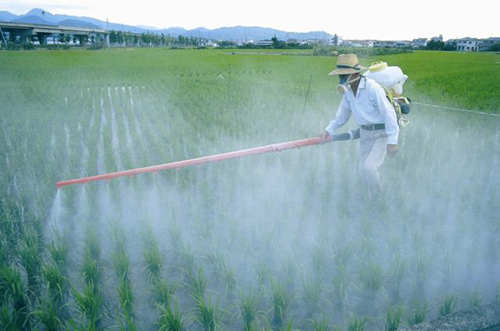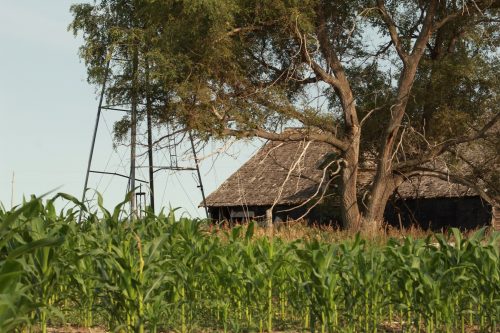With more than 9.7 million acres of farmland in the state, agriculture is a big deal in Florida. And because agriculture is inextricably linked with Florida’s natural resources, state representatives often put forth bills that aim to balance production with environmental conservation – a task that isn’t always easy.
Here’s what this year’s agricultural-focused legislation is all about:
Products Liability Actions Under the Florida Pesticide Law
Pesticides play a crucial role in Florida’s agriculture, which is one of the largest in the U.S., particularly in the production of citrus, tomatoes, strawberries, and sugarcane. The state’s 44,400 commercial farms span 9.7 million acres, with 6,400 farms reporting sales exceeding $100,000. With Florida’s diverse climate, pesticides are essential for protecting crops from pests, diseases, and weeds that could otherwise damage yields. The use of these chemicals is regulated by the Florida Department of Agriculture and Consumer Services (FDACS), ensuring that they are applied according to strict guidelines to protect human health, wildlife, and the environment.

The regulation of pesticides in Florida is governed by state and federal laws, including the Florida Pesticide Law and the federal Insecticide, Fungicide, and Rodenticide Act (FIFRA). Under Florida law, all pesticides must be registered with the FDACS, and their use must comply with the label instructions. The state also requires pesticide applicators to be licensed or certified, ensuring that they are trained in safe and effective application methods. Additionally, the U.S. Environmental Protection Agency (EPA) evaluates pesticides at the federal level, ensuring they meet safety standards before being approved for use.
While pesticides are vital for Florida’s agriculture, their use has raised concerns over environmental and health risks. Issues like pesticide runoff, water contamination, and harm to endangered species are ongoing challenges. Furthermore, pesticide exposure has been linked to health issues, such as cancer and neurological disorders. As a result, there is growing interest in alternatives like Integrated Pest Management (IPM) and biopesticides, which aim to reduce chemical pesticide use while still managing pests effectively. These efforts reflect a broader push toward more sustainable agricultural practices in the state.
Two similar bills, SB 992, introduced by Sen. Jay Collins (R), and HB 129, introduced by Rep. J.J. Grow (R) for the 2025 legislative session, propose new limitations on products liability actions under the Florida Pesticide Law. The bill restricts the circumstances under which legal claims can be brought against pesticide manufacturers, aiming to limit their liability exposure. It will prohibit products liability actions based on failure-to-warn theories under certain conditions, effectively reducing the avenues for pursuing claims related to pesticide harm.
SB 992 outlines that unless certain criteria are met, individuals cannot initiate or maintain products liability lawsuits against pesticide companies. This change seeks to protect manufacturers from legal actions stemming from alleged insufficient warnings about their products, reinforcing their legal standing. Companion legislation, HB 129, introduced by Rep. Grow, mirrors these proposed limitations, ensuring a coordinated legislative effort.
If enacted, these bills would reshape how pesticide-related legal disputes are handled in Florida. By narrowing the legal grounds for claims, the bill may reduce litigation risks for manufacturers while simultaneously limiting the legal recourse available to those alleging harm. As the bill progresses through the Judiciary, Agriculture, and Rules committees, its implications for both industry practices and consumer protections will be closely watched.
While Sen. Collins (R) claims this bill is necessary to protect Florida’ agricultural industries, the opposition of this bill include a coalition of agricultural groups who say the bill will limit the rights of people to hold companies accountable if their products cause harm.
Agronomic Study on Emerging Crops
Florida’s agriculture is currently grappling with significant challenges posed by shifting weather patterns and the increasing prevalence of devastating plant diseases. These stressors have led to declining yields for farmers across the state, threatening both livelihoods and the stability of the agricultural sector. In response to these growing risks, lawmakers are introducing new legislation aimed at exploring innovative solutions, including the development and adoption of alternative crops — often referred to as “emerging crops.” These crops, which may be better suited to withstand Florida’s evolving climate conditions and disease pressures, offer a potential lifeline to farmers by diversifying production and reducing reliance on vulnerable staples. The proposed measures seek to support research, provide financial incentives, and create pathways for growers to transition to more resilient agricultural practices, ultimately helping to safeguard the state’s farming industry and ensure long-term sustainability.
SB 178, introduced by Florida State Sen. Darryl Rouson (D), mandates that Florida Agricultural and Mechanical University (FAMU) conduct an agronomic study on emerging crops within the state, contingent upon legislative appropriation. The objective is to explore potential new crops that could diversify and strengthen Florida’s agricultural sector. FAMU is required to compile a report detailing their findings and submit it to both the Governor and the Legislature by a specified deadline.
If enacted, SB 178 could pave the way for the introduction of new, viable crops in Florida, potentially boosting the state’s agricultural economy and providing farmers with alternative cultivation options.
SB 700: Department of Agriculture and Consumer Services
Two similar bills, SB 700, introduced by Sen. Keith Truenow (R), and HB 651, introduced by Rep. Kaylee Tuck (R) & Rep. Danny Alvarez (R), include several measures to address issues related to the Florida Department of Agriculture and Consumer Services. Rep. Danny Alvarez has previously introduced similar legislation, which was sent to the governor for approval, reflecting ongoing efforts to bolster Florida’s agricultural sector. This bill has been dubbed the “Florida Farm Bill” and aims to update and enhance regulations overseen by the Florida Department of Agriculture and Consumer Services (FDACS). FDACS plays a crucial role in supporting Florida’s agricultural industry, protecting the environment, ensuring consumer safety, and maintaining food quality. Whether directly or indirectly, most Floridians interact with this agency in some capacity.

The proposed legislation introduces a variety of measures that will change agricultural practices, public safety, and consumer services. Key provisions include exempting certain FDACS positions from the Career Service System, protecting school-wide agriculture programs – 4-H and Future Farmers of America, requiring electric utilities to submit long-term site plans for power plants, implementing new regulation for electric vehicle charging stations, and the most debated issue – removing fluoride from drinking water.
Further amendments address the classification of agricultural lands, ensuring that lands housing solar energy systems can still be classified as agricultural if they meet specific criteria. The bill also prohibits financial institutions from discriminating against agricultural producers based on Environmental, Social, and Governance (ESG) factors. Stricter regulations are set for charitable organizations regarding foreign contributions, and the bill boosts funding for mosquito control programs while introducing penalties for mislabeling food products.
Supporters of SB 700 highlight its focus on protecting the freedoms of farmers and hunters. As Sen. Danny Burgess (R) stated, “This bill is about defending freedom — freedom for our farmers to work their land without interference and freedom for our hunters to enjoy their sport without harassment.” If passed, Sen. Burgess says the Florida Farm Bill will solidify protections for agricultural operations, enhance consumer safety regulations, and support rural communities across the state.
Medical experts highly advise against removing fluoride from drinking water, arguing that “fluoridation is one of the most effective public health measures to prevent tooth decay,” and citing medical studies that have proven fluoride to protect dental health.
This bill has been introduced before and was laid on the table but later died at the end of the session: 2023. Currently, this bill is favorable with committee substitutes.
Other related bill:
- Nonprofit Agricultural Organization Medical Benefit Plans –HB 497